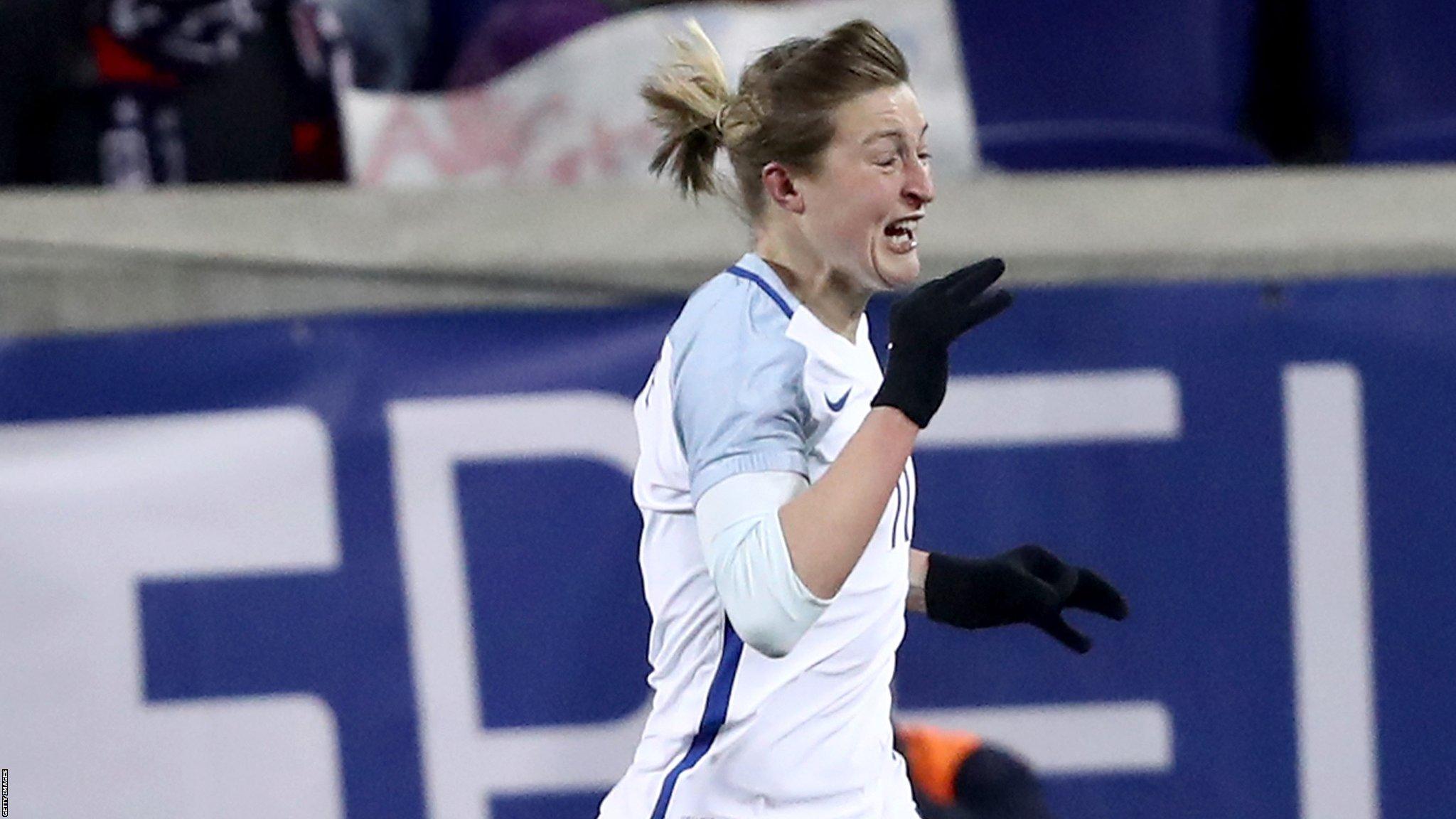Rachel Yankey: Top female coach in men's football 'long way off'
- Published
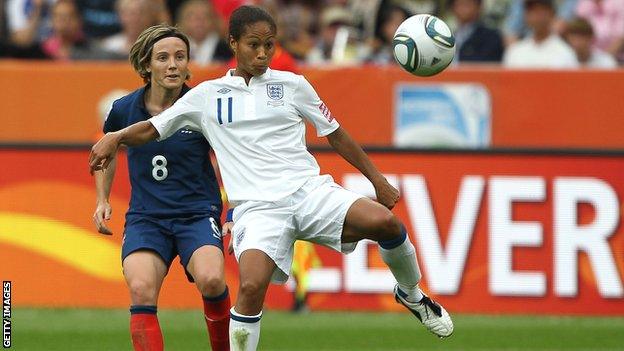
Rachel Yankey earned 129 England caps and scored 19 goals
On International Women's Day, former Arsenal and England winger Rachel Yankey explains how views on women in football have changed over the past 15 years and why producing better female coaches is more of a priority than making a breakthrough in the men's game.
When I was a kid, I once shaved my head to pretend to be a boy because it ensured no-one questioned me as a footballer.
And when I started coaching in primary schools in 2004, the kids would see a woman walk into the playground and say: "Why have we got a female coach?"
Thankfully, that sort of scenario doesn't happen any more.
When I was recently doing my Uefa B licence, I coached at Barnet's under-18 men's team and there were no quizzical looks or snide comments.
It probably helped that they recognised me from my playing career at Arsenal and England, but they accepted me for who I was and after a few sessions I gained their trust. It feels pretty cool when a player turns to you and asks: "As a winger, what would you do?"
That shows you the perception of women playing and coaching football has changed massively, but there's still a lot to work on and the lack of female coaches at the top level is still an issue.
People often ask when we'll see a female coaching at a men's professional team, but a more pertinent question is: how many females are working at the top of women's football in England?
In the top two divisions of the Women's Super League, five out of 20 managers are women so, in my view, we need more qualified female coaches in that area first.
Why isn't that happening?
The reasons for the lack of women's coaches are numerous and I'm not going to pretend I have all the answers.
The first thing to say is that the coaches need to be good enough in the first place. They must have the right qualifications and experience, and I would hate to see jobs being handed out in a tokenistic fashion. That doesn't help anybody.
There are problems in getting female coaches onto courses in the first place, and I think that's where some hard work needs to happen. It might be that women don't know when the courses are happening or they fear being rejected or laughed at, like girls used to when they wanted to play football. I can only say that football is a lot more tolerant now.
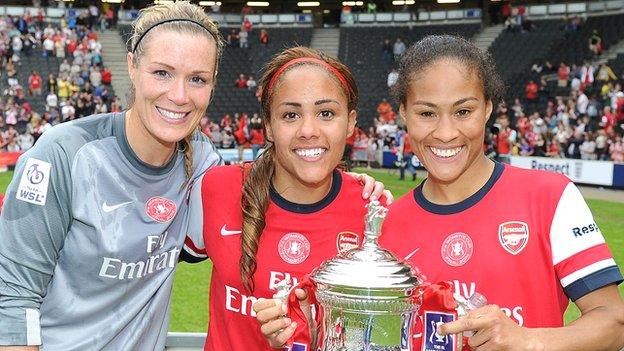
Yankey won eight league titles, nine FA Cups and a Uefa Women's Cup with Arsenal
The real problem comes when female coaches are being rejected for work despite having the qualifications.
Is it covert sexism? I draw parallels with qualified black coaches who struggle to get employment. People need to be given a chance and for that to happen, perceptions need to change.
If you have the experience and qualifications and you don't get a job, you will always look for the reasons why. I would urge those chairmen, or whoever is hiring, to be more open-minded.
The future looks bright
I'm now part of a group of elite female players, including former England skipper Casey Stoney, and record England goalscorer Kelly Smith, who are doing their Uefa A licence.
There are many more England players who are heading down this pathway, and it points to a bright future where experienced internationals can pass their knowledge onto the next generation.
Do we need to break into the men's game to make it as a coach? I don't think that's necessary in order to be considered a success. And I think it will be a long way off anyway because of the external influences which will judge you.
Look at how Arsenal manager Arsene Wenger or Leicester boss Claudio Ranieri are treated by fans and the press. It's a cut-throat business and imagine if a female manager was in charge.
Despite the progress, stereotypes still exist in football and until that is broken down it will be extremely difficult for a woman to manage a top level men's team.
A lot of it will be down to the culture of the club, similar to Clermont Foot in France where Corinne Diacre has had some success in the French second division.
Highlights: England beat world champions USA
On a personal level, I'm concentrating on being the best coach I can be but it's a challenge moving from the playing side to being on the sidelines.
Despite being released from Arsenal, I've not hung up my boots yet and I actually find it easier to spot things while I'm on the field. I enjoy passing on my football knowledge and I'm looking forward to helping shape the future of women's football.
After England reached third place in the 2015 World Cup, we have evidence that we are producing better players so now we need take the same approach with our coaches.
Once that happens, perhaps we will see more female coaches pushing towards the men's game and maybe even Premier League or Football League clubs seeking those coaches out.
Former England boss Hope Powell was linked with Grimsby at one stage and now she is working in a Professional Footballers' Association role educating male coaches in professional clubs.
That will change perceptions and ensure she is rightly seen as a successful coach, who just happens to be female.
Rachel Yankey was speaking to BBC Sport's Alistair Magowan.
- Published8 March 2017
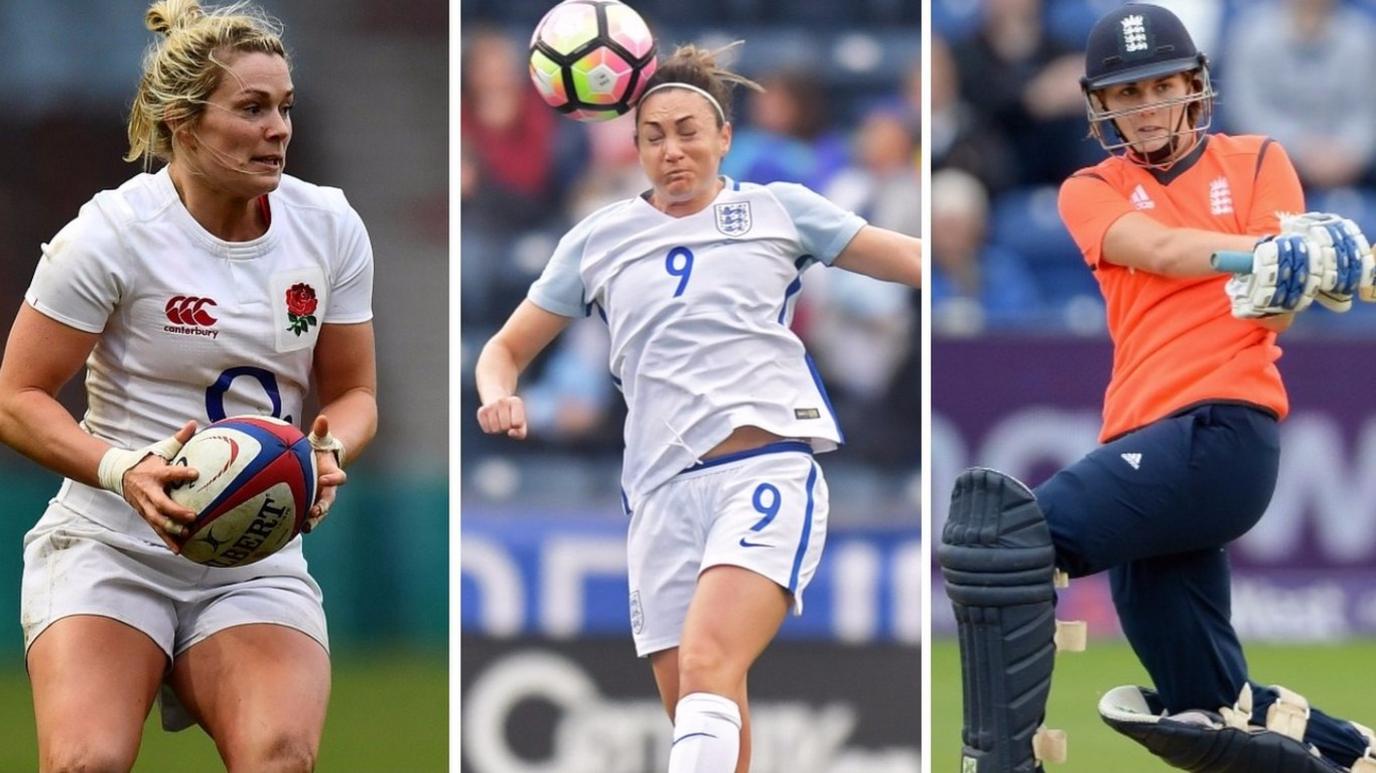
- Published7 March 2017
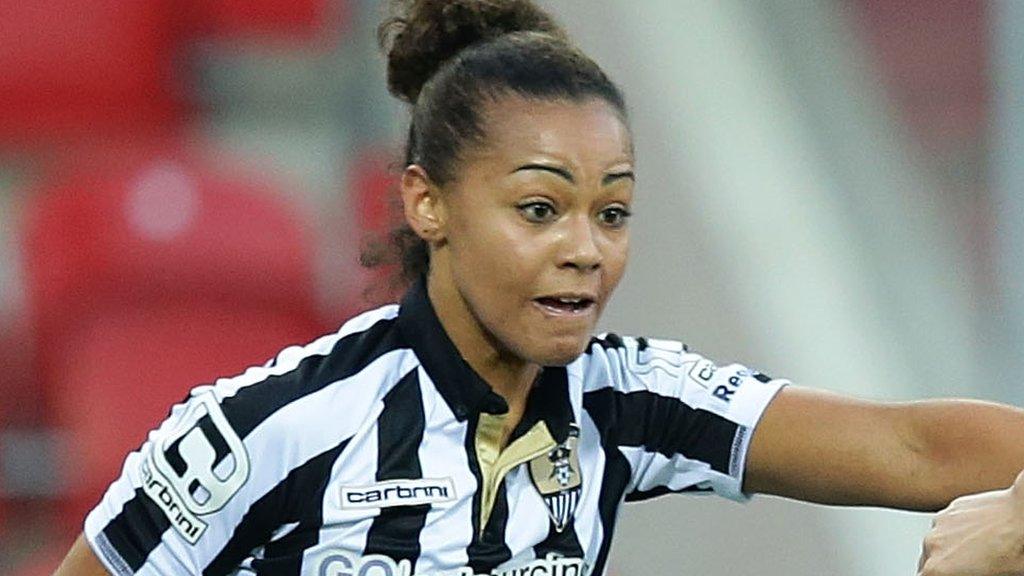
- Published6 March 2017
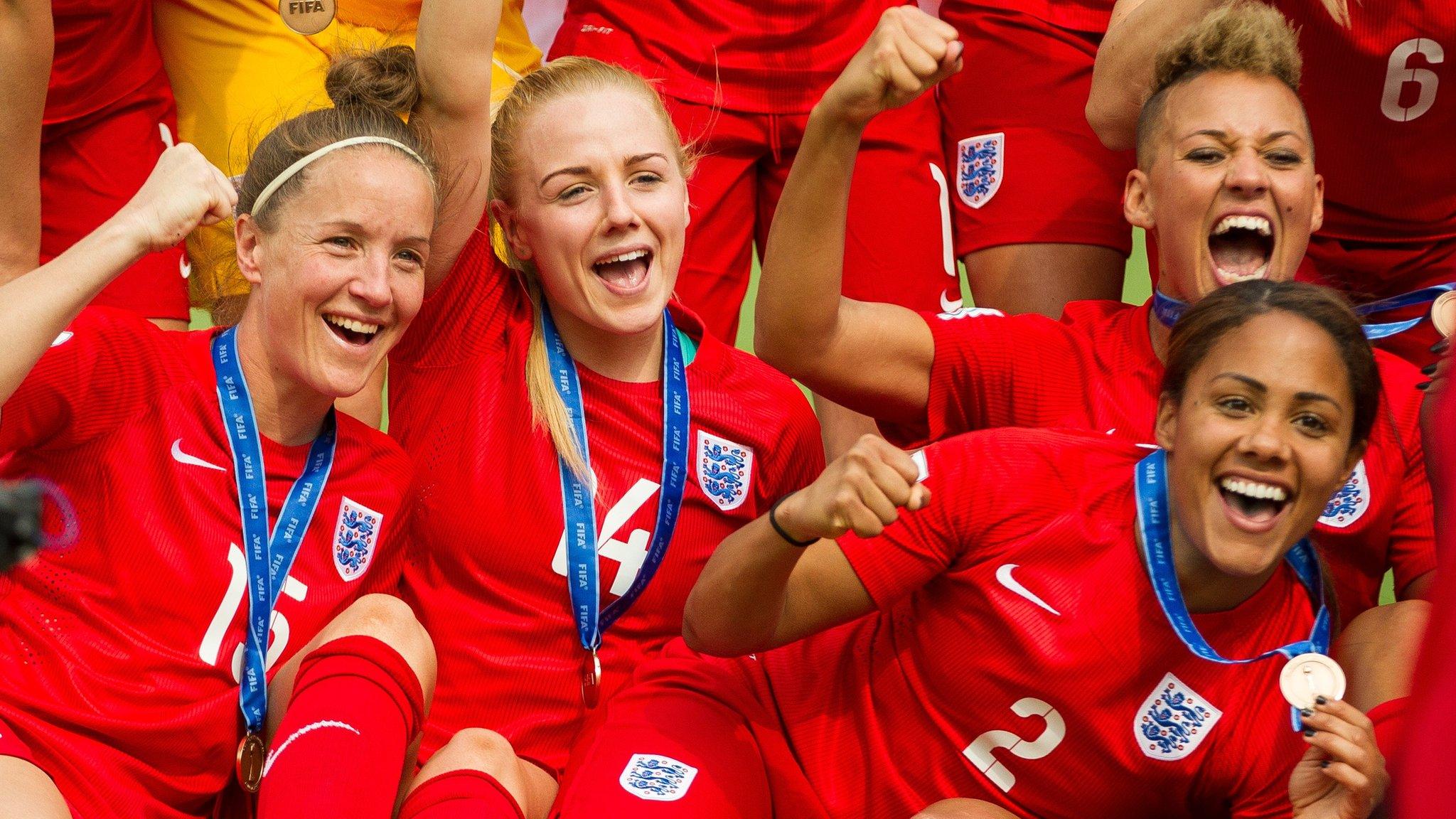
- Published5 March 2017
